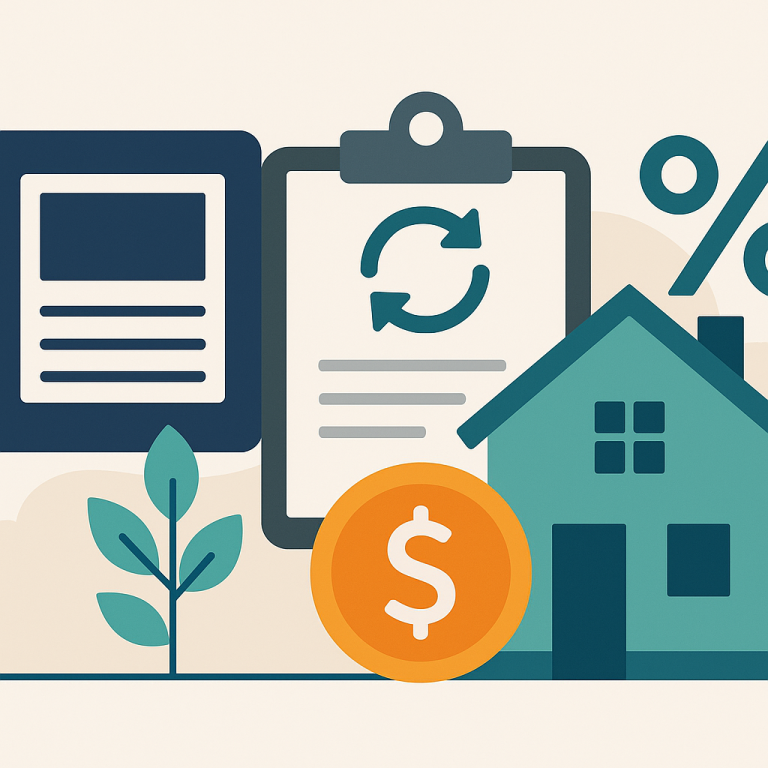Refinance guide condo litigation and warrantability impact on refi
Condo litigation and warrantability: how legal disputes affect your refinance
When you refinance a condominium unit, lenders don’t just evaluate your credit and the unit itself — they also review the condo project. “Warrantability” refers to whether a condo association meets the underwriting standards lenders use (frequently aligned with Fannie Mae, Freddie Mac, FHA, VA, or a lender’s own overlays). Active litigation involving the association or common elements can make a project non-warrantable and block — or complicate — a refinance. This article explains what that means, when it matters, trade-offs, costs, the refinance steps, common pitfalls, and answers to common questions homeowners have.
What it is and when it makes sense
Condo litigation can involve construction defects, common-area disputes, board conflicts, covenant enforcement cases, or large claims against the association’s finances or insurance. Lenders evaluate whether litigation threatens the association’s financial stability or the marketability of units. If the lawsuit is likely to have a material adverse effect, underwriters may mark the project non-warrantable.
It makes sense to consider how litigation will affect a refinance when:
- The HOA has disclosed pending lawsuits in resale or HOA documents;
- The litigation involves significant common elements (roofs, structural issues) or many units;
- The suit threatens special assessments, major reserve draws, or insurance coverage;
- You need a conforming or FHA/VA-backed loan, which typically requires warrantability.
Benefits and drawbacks
Benefits of refinancing despite litigation (when possible)
- Lower interest rate or monthly payment if you can get a loan — immediate savings.
- Move to a fixed-rate product or improve loan terms (term, payments, cash out limited).
- Consolidate debt or fund repairs without waiting for litigation to resolve.
Drawbacks and risks
- Non-warrantability can disqualify you from conventional, FHA, or VA programs — limiting lender options.
- Higher interest rates or fees from portfolio or specialty lenders willing to take the risk.
- Potential for surprise special assessments or reduced resale value if litigation damages the project’s finances.
- Refinance approval can be delayed while underwriters review HOA documents and litigation exposure.
Costs and fees to expect
Refinancing a unit in litigation often carries extra costs beyond typical refinance charges:
- Condo questionnaire/management documentation fees charged to the lender or borrower;
- Legal review fees if the lender’s counsel reviews HOA governing documents or litigation records;
- Higher appraisal or supplemental site inspection fees if the appraiser must evaluate common-area defects;
- Potential escrow or reserve requirements imposed by the lender if the association’s reserves are inadequate;
- Higher interest rates or lender pricing adjustments for non-warrantable projects; portfolio lenders may charge a premium;
- Costs for a condo attorney to advise you or negotiate with the board (recommended when litigation is complex).
Step-by-step process for refinancing when condo litigation exists
1. Early assessment: Ask the association for the most recent HOA documents, reserve study, budget, insurance certificate, and litigation disclosures. Review resale or estoppel statements for pending claims.
2. Consult professionals: Speak with a lender who understands condos and an attorney experienced in HOA litigation. The lender can preliminarily flag warrantability issues.
3. Choose the right lender/product: If the condo may be non-warrantable for conforming or government loans, get quotes from portfolio lenders, local banks, credit unions, or lenders offering exceptions.
4. Provide documentation: Your lender will request the condo packet, management company contact, and often a completed condo questionnaire. Expect underwriting scrutiny of litigation details and potential financial exposure.
5. Underwriting and legal review: The lender or its counsel reviews HOA documents, claims, and budgets. They assess whether litigation threatens reserve levels, assessments, or insurance.
6. Appraisal and inspections: The appraiser will value your unit considering the project’s condition and marketability. Some lenders may require additional inspections.
7. Decision and conditions: If the lender approves, they may place conditions — e.g., evidence of sufficient reserves, escrow for potential assessments, seller/board statements, or documentation that litigation will not impair project value.
8. Closing: Once conditions are satisfied and closing costs paid, your loan funds. Keep in mind special assessments levied after closing remain the homeowner’s responsibility unless otherwise negotiated.
Common pitfalls to avoid
- Waiting to check warrantability late in the process — request HOA documents before locking a rate or choosing a lender.
- Assuming small claims won’t matter — underwriters focus on potential budget exposure and unit involvement, not just claim size.
- Relying on a single lender — shop multiple lenders, including portfolio options and community banks that may have different policies.
- Ignoring minutes and board actions — meeting minutes can reveal ongoing issues that affect underwriting decisions.
- Failing to consult a condo attorney — unauthorized or unclear disclosures can derail underwriting and closing.
Short FAQ
Q: Can I refinance if my condo association has a pending lawsuit?
A: Possibly. It depends on the lawsuit’s scope, how many units are involved, the potential financial impact on the association, and the lender’s policies. Some lenders will approve loans with conditions; others will decline. Portfolio lenders and some local banks may be more flexible than conforming or government-backed programs.
Q: Will litigation automatically make the condo non-warrantable?
A: Not automatically. Lenders assess materiality — whether the litigation threatens the association’s finances, insurance, or marketability. Small, isolated disputes are less likely to cause non-warrantability than lawsuits affecting common elements or large numbers of units.
Q: Are there loan types that accept non-warrantable condos?
A: Yes. Portfolio loans, some jumbo loans, and certain local lenders may consider non-warrantable projects. Options vary widely, so shop lenders familiar with condos and ask about their requirements and pricing.
Q: What should I do first if I want to refinance and my condo is in litigation?
A: Request the HOA documents and litigation disclosures, consult a lender and a condo attorney early, and gather evidence of the association’s financial strength (reserves, budget, insurance). Early transparency and multiple lender quotes will help you find the best path forward.
Refinancing a condo in litigation adds complexity but is not always impossible. Understanding warrantability, preparing documentation, consulting professionals, and exploring lenders beyond the conventional market are key steps to improving your chances and avoiding costly delays.
META: condo litigation, warrantability, refinancing condos, HOA litigation impact, condo refinance guide







